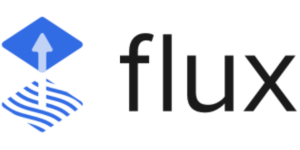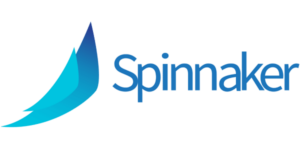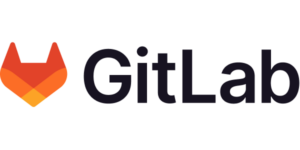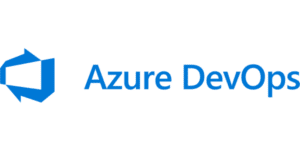What Are Continuous Delivery Tools?
Continuous delivery (CD) tools automate the process of software delivery from development to production. The goal of CD is to ensure that software can be quickly and safely deployed at any time. CD tools provide an automated pipeline for building, testing, and deploying code changes. They allow developers to focus on writing code while the tool takes care of the rest, reducing the time it takes to get software into the hands of users.
Continuous delivery tools are important in software development because they help automate the process of building, testing, and deploying software, enabling organizations to deliver new software features and updates more quickly and with greater reliability. Continuous delivery tools help to streamline the software development process, allowing development teams to focus on creating new features and functionality rather than spending time on manual build and deployment tasks.
What Is Included in Continuous Delivery Tools?
Continuous delivery tools aim to automate the software development process from code commit to deployment. They typically provide a set of tools and processes for building and testing software, including continuous integration, continuous testing, and continuous deployment:
- Continuous integration tools automatically build and test software every time code changes are committed to the repository, ensuring that all code changes are properly tested before being deployed.
- Continuous testing tools help to automate the testing process, allowing teams to quickly identify bugs and issues in the code.
- Continuous deployment tools automate the process of deploying software to production, allowing teams to quickly and reliably release new software features and updates.
Top Continuous Delivery Tools
Codefresh
License: Commercial
Product page: https://codefresh.io/product/continuous-delivery/
Codefresh is a modern continuous integration and continuous delivery toolchain built on the foundation of GitOps and Argo. It takes the best of the open source Argo toolset and provides essential enterprise features like a unified user interface, a single pane for cloud-wide management, secure enterprise-grade runtime, end-to-end auditability, and cross-application single sign-on.
It has comprehensive GitOps continuous integration designed for Kubernetes and modern applications. It is built for flexibility and scalability around Argo Workflows and Argo Events. Codefresh seamlessly combines the continuous integration side with a powerful GitOps software delivery solution powered by Argo that is tightly integrated with the continuous integration feature set. It includes support for advanced deployments like canary, blue-green, and experimental releases with the ability to easily track builds and releases across your organization.
It provides comprehensive dashboards that offer visibility from code to cloud while integrating with your favorite tools. A centralized dashboard gives insight into deployments at scale while providing the security and support enterprises need.
Octopus Deploy

License: Commercial
Product page: https://octopus.com
Octopus Deploy is a continuous delivery tool to simplify and automate complex software deployments across various environments, including multi-cloud, hybrid, and on-premises systems. Used by over 350,000 DevOps engineers, it helps teams manage, deploy, and roll back software releases.
FluxCD

License: Apache 2.0
Repo: https://github.com/fluxcd/flux2
FluxCD is an open-source continuous delivery tool built for Kubernetes. It helps automate the deployment and management of applications in a Kubernetes cluster. FluxCD uses GitOps, a Git-centric approach to CD, to manage the desired state of a cluster in Git and automatically reconcile the actual state with it.
This approach allows for version control of the infrastructure, declarative management, and automated rollbacks. FluxCD supports multiple deployment strategies, canary releases, and rollbacks, and integrates with other tools in the Kubernetes ecosystem.
Spinnaker

License: Apache License 2.0
Product page: https://www.spinnaker.io/
Spinnaker is an open-source, multi-cloud CD platform designed to make it easy to release software changes reliably and quickly. Spinnaker provides a pipeline-based approach to CD that allows developers to automate and visualize the entire software delivery process, from building and testing to deploying and monitoring.
It supports multiple cloud providers, such as Amazon Web Services (AWS), Google Cloud, Microsoft Azure, and more, and can be used to deploy to various environments, such as test, staging, and production. Spinnaker also offers features such as canary releases, blue-green deployments, and rolling updates.
Argo CD

License: Apache License 2.0
Repo: https://github.com/argoproj/argo-cd
Argo CD is an open-source CD tool that uses GitOps to manage and deploy applications on Kubernetes. It is designed to be highly scalable and operates by continuously synchronizing the desired application state defined in Git with the live state of the cluster.
Argo CD uses a declarative approach to CD, where the desired state of the application is defined in a Git repository, and Argo CD ensures that the live state of the cluster matches this definition. It also provides rollback and roll-forward capabilities, as well as visualization and reporting tools to monitor the status of deployments.
GoCD

License: Apache License 2.0
Repo: https://github.com/gocd/gocd
GoCD is an open-source CD tool that provides a pipeline-based approach to software delivery. It helps organizations automate and streamline the software delivery process, from building and testing code changes to deploying them to production.
GoCD provides an intuitive user interface for creating, managing, and visualizing pipelines, as well as advanced features such as parallel and sequential execution, automatic dependency management, and real-time analytics. It also supports a wide range of technologies and platforms.
Harness

License: Open source and commercial options
Repo: https://github.com/harness
Harness is a continuous delivery and continuous deployment (CI/CD) platform that helps organizations automate the process of delivering software changes to production. It provides features such as continuous integration, deployment pipeline automation, and rolling updates.
Harness integrates with various tools and platforms, including cloud providers, source control systems, and on-premise infrastructure, enabling organizations to automate their entire delivery process from development to production.
GitLab

License: Open source and commercial options
Repo: https://github.com/gitlabhq
GitLab is a web-based Git repository manager that provides source code management (SCM), continuous integration, and more. This platform helps manage the entire software development lifecycle (SDLC) from planning to deployment. With GitLab, teams can host and manage their source code repositories, track bugs, and collaborate with others on their projects.
GitLab also includes features such as continuous integration and deployment, code quality and security, and issue tracking. It can be used as a self-hosted solution or as a cloud-based service.
Azure DevOps

License: Commercial
Product page: https://azure.microsoft.com/en-us/products/devops
Azure DevOps provides a suite of capabilities for the various roles within a DevOps team, including developers, IT, and project managers. Users can access these features through an IDE client or a web browser. The suite offers two deployment types – Azure DevOps Services for clouds and Azure DevOps Server for on-premises deployment.
The suite includes services such as Azure Boards, which offers agile tools for planning and tracking work, issues, and code defects using Scrum and Kanban. Azure Repos supports using either Team Foundation Version Control (TFVC) or Git repositories for source control, and Azure Pipelines helps implement continuous integration and delivery of applications.
How to Choose Continuous Delivery Tools?
Here are some key factors to consider when selecting continuous delivery tools:
- Compatibility with existing tools and processes: It’s important to choose tools that can integrate with your existing tools and processes, such as version control systems, build tools, and testing frameworks.
- Scalability: The tool should be able to handle the scale of your organization’s software delivery process, as well as the number of users and concurrent pipelines.
- Ease of use: The tool should be easy to use and understand for your development teams, with a user-friendly interface and clear documentation.
- Customizability: The tool should allow for customization and flexibility to adapt to the specific needs of your organization.
- Support for Kubernetes: Many organizations are adopting cloud native development environments and workflows, and modern CD tools should natively support Kubernetes.
- Security and compliance: The tool should comply with industry standards and regulations, and also ensure that the process is secure.
- Reporting and analytics: The tool should have the ability to provide real-time pipeline monitoring and analytics, and also provide reports on the software delivery process.
By considering these factors, organizations can select the right continuous delivery tool that will meet their specific needs and help them to deliver software changes quickly and reliably, with minimal risk and downtime.
Continuous Delivery with Codefresh
Delivering new software is the single most important function of businesses trying to compete today. Many companies get stuck with flaky scripting, manual interventions, complex processes, and large unreliable tool stacks across diverse infrastructure. Software teams are left scrambling to understand their software supply chain and discover the root cause of failures. It’s time for a new approach.
Codefresh helps you meet the continuous delivery challenge. The Codefresh platform is a complete software supply chain to build, test, deliver, and manage software with integrations so teams can pick best-of-breed tools to support that supply chain.
Built on Argo, the world’s most popular and fastest-growing open source software delivery toolchain, Codefresh unlocks the full enterprise potential of Argo Workflows, Argo CD, Argo Events, and Argo Rollouts and provides a control-plane for managing them at scale.
Learn more about the Codefresh CI/CD Platform.